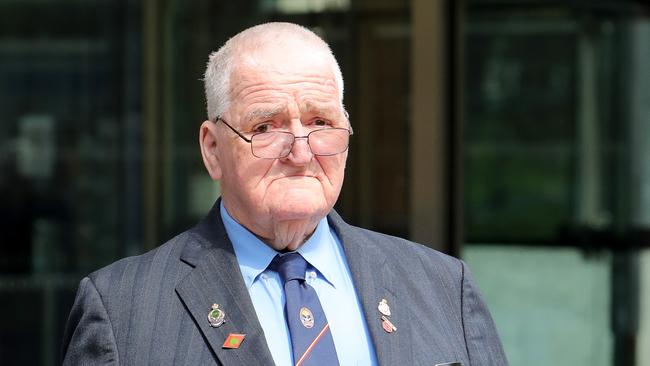‘Honour Billy Hughes’s pledge to vets 100 years ago’
Australia should honour the pledge by Billy Hughes 100 years ago to look after soldiers of the Great War, says a Vietnam veteran.

One hundred years ago, Australia’s “great wartime leader” Billy Hughes pledged to look after the physical and mental health of soldiers returning from the Great War, Vietnam veteran Brian Lynch told the aged-care royal commission on Tuesday, a pledge he said current governments should honour for today’s ageing veterans.
Mr Lynch, 73, told the commission of his rollercoaster journey through the aged-care system since his two tours of duty as a military cook in Vietnam, including living with a series of mental health issues including post-traumatic stress disorder, depression, anxiety and bipolar disorder.
He said Hughes promised the 160,000 soldiers wounded both physically and mentally in World War I that “the Australian government and people would look after them, both medically and financially, in order that they would re-assimilate into society”.
“We, the modern veterans, do not want anything other than this pledge of Billy Hughes to be honoured,” he said.
In his post-war years, Mr Lynch has seen the best and the worst of aged care in Australia.
He told the commission he was unable to remember any of the five years he spent in a residential aged-care facility in Albury-Wodonga, where he was suffering from severe PTSD.
“It's an insidious thing to go through, to know that you were functioning at the time but have no recollection,” Mr Lynch said. “I now know that I shouldn’t worry about it, and look at that period of life as if it was a long sleep.”
Mr Lynch was shocked to see a photo of himself at the regional aged-care facility, where he was treated for severe post-traumatic stress disorder. “I'm definitely not with it. I’d say I was over-medicated,” he said. Mr Lynch has since moved to Adelaide and into an aged-care facility for veterans where his mental health has improved and his memory is returning. His treatment includes regular psychiatrist and psychologist consultations, and regular preventive stays in a veteran’s hospital. He meets a group of veterans for an outing each Friday.
“I will say it in one word: home,” he said of his new residence. Mr Lynch has also been encouraged to provide his culinary knowledge as part of the war veteran facility’s meal committee. “You’re given the chance to put your expertise in the field that you were trained in,” he said.
Mr Lynch’s testimony was part of the commission’s week-long examination of aged care for people with culturally and linguistically diverse backgrounds, LGBTI people, homeless people or those at risk of homelessness, people who have survived forced removal from their parents and veterans.
War Veterans Home operator RSL Care SA CEO Nathan Klinge told the commission the average age of entry for Vietnam veterans into his two facilities was 74, compared with nearly 85 for the general community.
Mr Klinge said veterans with PTSD can age ahead of their time and require early entry into residential aged care.



